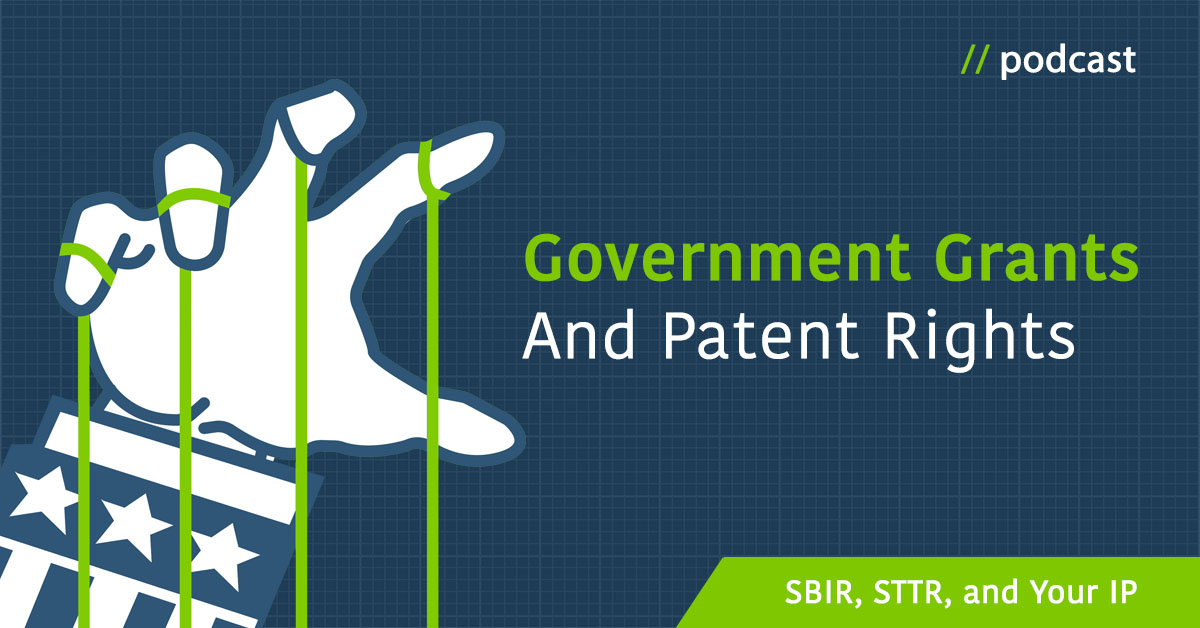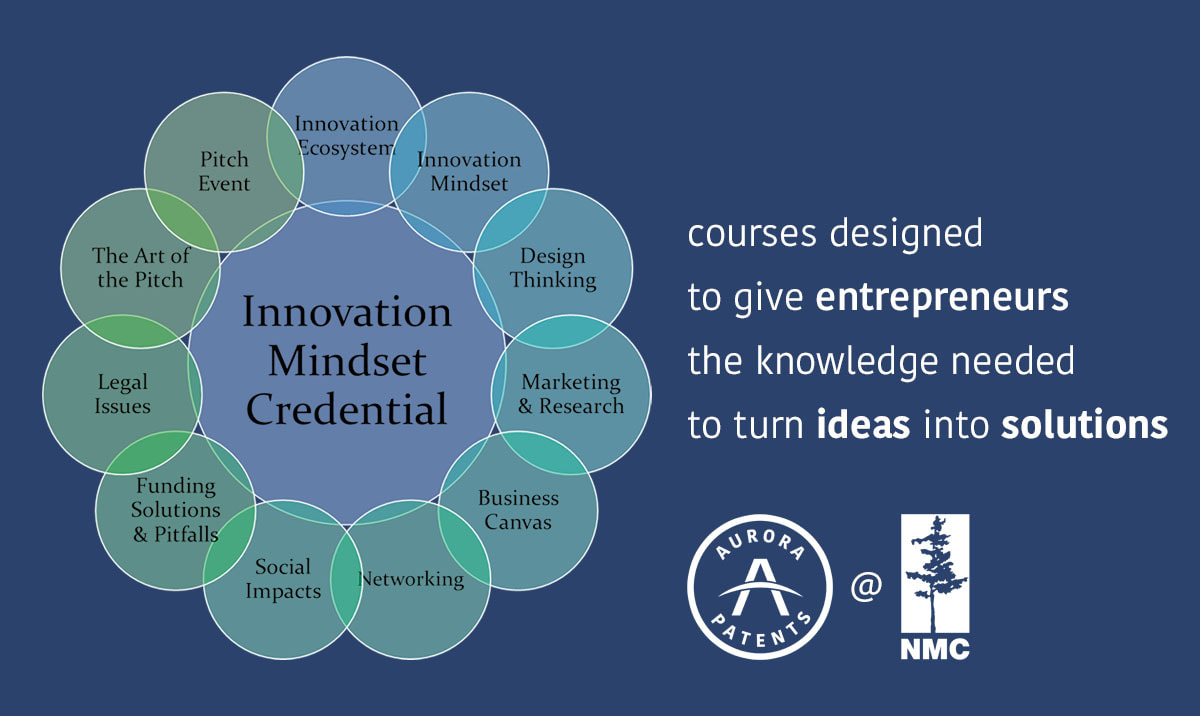|
By: Josh Sloat
SBIR, STTR, and Your IP
In this month's episode, we’re talking about the use of government grants and the strings that can come attached to your IP! We’re exploring the various types of small business research grants, how the Bayh-Dole Act regulates inventions generated under government grants, licensing and ownership implications for your patent when using federal dollars, and the sticky webs that you may find yourself in if you are not carefully tracking IP and adhering to the numerous provisions and timelines.
Largest Source of Early-stage Capital for Life Science Startups
The use of government grants for research and development is one of the most common areas of concern we get questions about from our clients. And for good reason! Non-diluting capital can be an essential source of funding when trying to get your innovation off the ground. Investor money comes with loss of equity and/or control. Family and friends’ money may come with the risk of strained relationships. So, essentially free money by way of government grants can seem like an obvious choice, right? And it is for many. The Small Business Technology Transfer (or STTR) and Small Business Innovation Research (or SBIR) grants are the largest source of early-stage capital for life science startups in the United States, combining to provide over $2B annually in support from federal agencies like the NIH.
With Strings Attached...
But like money from investors, friends, and family, these grants do still come with some serious strings attached and potential ramifications you need to be aware of. For instance, use of these funds grants the government a royalty-free license to practice your invention worldwide. To the surprise of many, and as we’ll discuss, this can include royalty-free use of patents obtained before even applying for the grant. This is potentially a big problem, especially if the federal government could be one of your primary customers. Other provisions can result in lost ownership rights if you fail to commercialize or neglect to file the correct paperwork on time. Most of these things are manageable, but when considering government grants, you need to be aware of these gotchas so you’re going in with clear eyes and can manage the hooks in a way that doesn’t jeopardize your patent rights.
That awareness is our focus today. Dr. Ashley Sloat, President and Director of Patent Strategy here at Aurora, leads the discussion along with our all-star patent panel, exploring:
Mossoff Minute: PREVAIL Act
In this month's Mossoff Minute, we discuss the introduction of a very important piece of patent reform legislation called the Promoting and Respecting Economically Vital American Innovation Leadership Act (PREVAIL). We’re also publishing excerpts as short-form videos on Instagram Reels, YouTube Shorts, and TikTok.
Availability
Patently Strategic is available on all major podcasting directories, including Apple Podcasts, Spotify, and Google Podcasts. We're also available on 12 other directories including Stitcher, iHeart Radio, and TuneIn, so you should be able to find us wherever you listen to podcasts.
Resources
Related Episodes
Transcripts We're also providing computer-generated transcripts for improved accessibility and additional reference opportunities. Slides For the visual learners out there, we also like to make our presenter slides available for your reference.
0 Comments
By: Josh Sloat
Aurora is teaming up with Northwestern Michigan College (NMC) in Traverse City to help provide aspiring entrepreneurs with an Innovation Mindset Credential. This is a brand new curriculum, highly-tailored toward startup bootstrapping and turning ideas into real-world solutions. Getting off the corporate hamster wheel or finding the motivation to kick start your side hustle is just the beginning. The path to becoming a successful startup is one that comes with MANY hats. You know your domain like the back of your hand, but you'll have a massive oh-no second once you start running into all of the other things necessary to bring your idea to the marketplace. You'll be a technologist, a designer, a marketer, an accountant, an HR wizard, a salesperson, an attorney, and a professional people person. You don't have time to become all of these things and you don't have the money to pay to have them all done for you. This course is everything you need to know, presented in digestible bits, meant to get you off to the races on building the next great thing, while doing so from a foundation built to last. Program Summary
The Innovation Mindset Credential is a skills-development program designed to give participants the knowledge needed to think like an entrepreneur, act like an innovator, and turn ideas into tangible innovations.
Program Overview and Outcome
26 hours of interactive training focused on developing the skills to turn an idea into a viable business solution. The program focuses on the following areas:
Legal Issues
Dr. Ashley Sloat will be the instructor for the Legal Issues Course. She'll be covering many of the i's and t's you need to consider when getting started. From her position of domain expertise, she'll help you understand what you need to make sure you're protecting your intellectual assets like patents, copyrights, and trademarks. From her background as a business owner educated in the school of hard knocks, she'll share lessons learned about business formation, essential contracts, entity-based tax considerations, and what to think about before bringing on employees or contractors to help. Program Outcomes A Business Canvas and a disclosure-proofed Pitch Deck supporting your idea. Schedule and Cost
Courses start soon!
Enrollment is now open for classes starting in September. Hope to see you soon! And if you have any questions you'd like to make sure we address in our course, drop us a line!
|
Ashley Sloat, Ph.D.Startups have a unique set of patent strategy needs - so let this blog be a resource to you as you embark on your patent strategy journey. Archives
July 2024
Categories |






 RSS Feed
RSS Feed